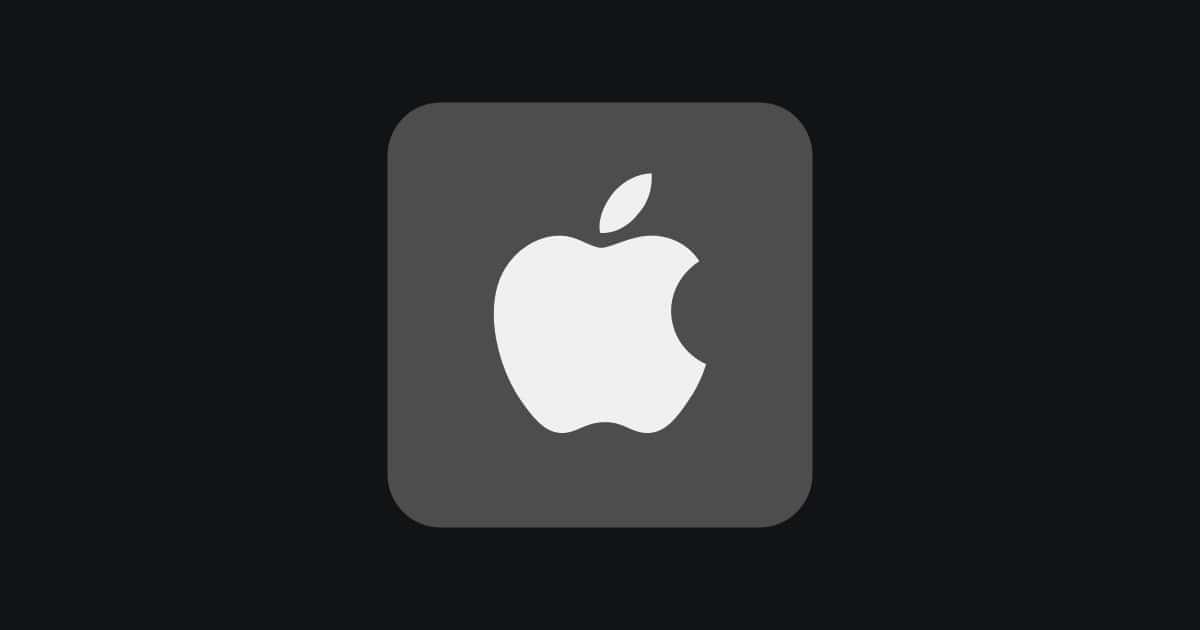The European Union has taken a bold stance against Apple’s tech dominance. The EU is now ordering Apple to open up iOS features to third-party devices under the Digital Markets Act (DMA). Apple must allow better access to iPhone features like iOS notifications and automatic audio switching for non-Apple gadgets by the end of the year.
This push for openness aims to break down Apple’s “walled garden” approach. The European Commission wants to boost competition by forcing the tech giant to share access to Bluetooth and NFC features with other developers. These changes could make third-party headphones, smartwatches, and accessories work more smoothly with iPhones.
The DMA regulations mark a major shift in how big tech companies must operate in Europe. Apple will need to provide device manufacturers and app developers with technical documentation and support to enable the same seamless experience that Apple’s own products enjoy.
Apple Faces Sweeping New Demands from EU to Open Up the iPhone
The European Union isn’t done with Apple just yet. After forcing the tech giant to allow third-party app stores and alternative payment options on iOS under the Digital Markets Act (DMA), the EU is now pushing even deeper—ordering Apple to make some of its most exclusive features available to rival devices and services. The European Commission’s latest move requires Apple to break down even more of its walled garden, potentially changing how millions of people interact with their iPhones.
What the EU Is Demanding This Time
The latest set of changes targets Apple’s tight control over interoperability. According to the EU, Apple must allow third-party developers and device makers to access several features that are currently only available to Apple’s own products or apps.
Here’s a breakdown of what Apple will have to open up:
| Feature | Current Status | What the EU Wants |
|---|---|---|
| AirDrop | Only works between Apple devices | Must work with non-Apple phones and PCs |
| AirPlay | Apple ecosystem only | Open to third-party TVs and speakers |
| SharePlay | Exclusive to FaceTime & Apple apps | Allow other video/chat apps to use it |
| Background Tasks | Limited on third-party apps | Equal access for all apps |
| Audio Switching | Apple devices auto-switch audio | Must allow third-party earbuds & devices |
| Notifications for Smartwatches | Only Apple Watch gets full access | Third-party watches get equal treatment |
| High-Bandwidth USB for VR | Apple Vision Pro only | Open support for third-party VR headsets |
| Wi-Fi Setup | Apple-only onboarding experience | Third-party accessories can initiate Wi-Fi setup |
| Contactless Payments | Only through Apple Wallet | Must allow NFC access for other payment apps |
This isn’t a suggestion—it’s a mandate. And it’s scheduled to go into effect before the end of 2025, unless Apple can successfully appeal or negotiate modifications.
Why the EU Is Doing This
The Digital Markets Act was created to rein in “gatekeeper” platforms—companies so dominant that their behavior can distort entire markets. Apple fits squarely into that category. While the company argues its ecosystem is designed to protect privacy and security, the EU believes Apple is using that argument to maintain an unfair advantage.
“We want to give users more choice and developers more opportunities,” said an EU official familiar with the Commission’s decision. “Interoperability is not a threat to innovation. In fact, it’s what drives it.”
Apple has already been fined nearly €1.8 billion for anti-competitive practices related to Apple Music and Spotify. The message from Brussels is clear: the EU is serious about tearing down platform monopolies.
Apple Pushes Back (Again)
Apple’s response? No surprise—they’re not happy.
In a statement, the company said, “We are concerned these changes could compromise the privacy and security of our users and create new vectors for malware, scams, and data exploitation.”
Apple has long argued that opening up its systems in the way the DMA requires could erode its ability to deliver a safe and reliable user experience. And to be fair, it’s not just PR spin. Apple has built one of the most secure mobile ecosystems in the world by controlling the hardware and software stack tightly.
But the EU isn’t buying it. The Commission says Apple can still maintain security without locking out competition.
How This Could Affect Users
The real-world impact could be significant. While most consumers won’t see immediate changes, once these interoperability rules kick in, iPhones may begin to look and feel much more open—similar to Android devices in some ways.
Here’s what users might notice:
- You could send files via AirDrop to an Android phone.
- Your Galaxy Watch or Garmin might finally get real-time notifications like an Apple Watch.
- You might be able to use contactless payments via PayPal or your bank’s app, not just Apple Wallet.
- A third-party VR headset could pair with your iPhone and use high-bandwidth features.
- You may even set up Wi-Fi accessories like smart bulbs directly from the iPhone’s setup interface.
This level of openness is a massive cultural and technical shift for Apple—one the company has resisted for over a decade.
What’s Next?
With a compliance deadline looming, Apple now faces two options: cooperate and implement the changes or fight back in court. Given Apple’s track record, a legal challenge is likely, but many analysts believe the company is running out of runway.
In the meantime, developers and accessory makers across Europe are watching closely. If Apple opens these doors, it could spark a wave of innovation in hardware and app ecosystems that were previously locked out of full iOS integration.
And this might only be the beginning. As the EU enforces more of the DMA, other tech giants—Google, Meta, Amazon—are also under the microscope. But for now, Apple is at the center of the storm, with its iPhone no longer immune to external influence.
Key Takeaways
- The EU requires Apple to open iOS features like notifications and audio switching to third-party devices.
- Apple must provide technical documentation to help outside developers create products that work well with iPhones.
- These changes aim to increase competition and give consumers more choices beyond Apple’s ecosystem.
The European Commission’s Directive to Apple
The European Commission has ordered Apple to make significant changes to its iPhone ecosystem. This directive falls under the Digital Markets Act (DMA), which aims to ensure fair competition in digital markets.
Apple must now grant better access to iPhone features for device makers and app developers. The tech giant needs to open up specific connectivity functions that were previously restricted.
Some key requirements include:
- Opening up Bluetooth connectivity to third-party devices
- Providing access to NFC features for non-Apple products
- Allowing third-party devices to receive iOS notifications
- Enabling automatic audio switching between different brands
The EU wants these changes to improve how iPhones work with headphones, smartwatches, and other accessories made by different companies.
The European Union’s ruling aims to break down barriers in Apple’s iOS and iPadOS platforms. Consumers should have more choices when using their Apple devices with third-party products.
Apple has expressed concerns about these changes. The company claims the decision could harm its products and users.
Failure to comply with these interoperability requirements could result in hefty fines. The EU can impose penalties of up to 10% of a company’s global annual revenue.
This directive represents another step in the EU’s ongoing efforts to regulate big tech companies. The Commission continues to push for more open digital markets through antitrust investigations and regulatory oversight.
Impact of Digital Markets Act on Apple’s iPhone
The Digital Markets Act (DMA) has forced Apple to make significant changes to its iPhone ecosystem in the European Union. These adjustments target key features that have traditionally been exclusive to Apple’s closed system, aiming to increase competition and user choice.
Mandatory Interoperability Changes
Apple must now open several iOS features to third-party devices in the EU. This includes iOS notifications and automatic audio switching between devices. The company has to let non-Apple gadgets connect with iPhones in ways previously limited to Apple’s own product lineup.
These changes affect how iPhones work with other brands’ headphones, speakers, and wearables. Users might soon see Android watches displaying iPhone notifications or non-Apple earbuds switching audio between an iPhone and other devices.
For app makers, this means new opportunities to build cross-platform experiences. The DMA requires that Apple cannot block these connections or make them harder to use than Apple’s own options.
Adjustments for Connectivity Features
The European Commission has ordered Apple to open up Bluetooth and NFC features to third-party developers. This affects key iPhone technologies like:
- AirDrop: Must work with non-Apple devices
- AirPlay: Cannot be restricted to Apple-only products
- Peer-to-Peer Wi-Fi: Must be accessible to other companies
These changes strike at the heart of what makes the Apple ecosystem special – its seamless connectivity between devices. The company has long kept tight control over these features, arguing this helps maintain privacy and security.
iPhone users in the EU may notice these changes through new options to share files directly with Android phones or cast video to non-Apple TVs using native iOS controls rather than third-party apps.
Implications for Closed Ecosystem Practices
Apple has traditionally kept its ecosystem closed, but the DMA forces changes to this approach in the EU. The company must allow alternative app stores and payment systems on iPhones.
This requirement has met resistance. Apple has implemented compliance measures that critics claim don’t follow the spirit of the law. The Electronic Frontier Foundation notes that Apple categorically refuses to truly open iOS devices to rival app stores.
Apple argues these restrictions protect user privacy and security. The company warns that DMA compliance will create a gap between the protections EU users receive compared to those elsewhere.
For iPhone users, these changes may lead to more choices but potentially more complexity in how they use their devices.
Required Modifications to Other Apple Devices
Apple faces significant changes across its device ecosystem as the EU enforces interoperability requirements beyond just the iPhone. These changes aim to break down barriers between Apple’s products and third-party devices, affecting iPads, smartwatches, and audio peripherals.
iPad Compliance with the DMA
iPads must now follow the same Digital Markets Act rules as iPhones in the EU. Apple needs to provide faster responses to third-party developers and greater access to technical documentation for both iOS and iPadOS features.
The EU has sent Apple preliminary instructions on how to comply with interoperability provisions. These changes will let non-Apple apps work better with iPad features.
iPadOS must now open up its notification system to third-party devices. This means users can receive alerts from non-Apple products directly on their iPad screens.
Apple has expressed concern, stating these changes might harm its products and users. However, the EU maintains these steps are necessary to ensure fair competition.
Smartwatches and Accessibility
The EU is pushing Apple to open its ecosystem for better smartwatch integration. Non-Apple watches must gain improved access to iPhone and iPad features.
Third-party smartwatches will soon be able to interact with Apple’s Health app and receive notifications. Users won’t need an Apple Watch to get the full health tracking experience on iOS devices.
Key changes include:
- Enhanced health data sharing capabilities
- Better notification handling
- Access to Apple’s emergency features
- Improved location services integration
This marks a significant shift from Apple’s closed approach. Previously, only Apple Watches could fully interact with iOS health features and notifications.
For users with accessibility needs, these changes are particularly important. They can now choose devices based on specific accessibility features rather than being limited to Apple’s offerings.
Headphones and Peripheral Connectivity
Audio device connectivity faces major changes under the new rules. The EU is requiring Apple to enable automatic audio switching for third-party headphones.
AirPods currently enjoy exclusive features that other headphones can’t access. These include seamless switching between Apple devices and spatial audio features.
With the new requirements:
- Non-Apple headphones can switch automatically between Apple devices
- Third-party earbuds gain access to battery level indicators on iOS
- Spatial audio features may become available to more brands
- Find My functionality could extend to non-Apple audio devices
Apple must provide technical documentation to help third-party manufacturers implement these features. This gives users more freedom to choose headphones based on preferences rather than ecosystem compatibility.
The changes should take effect later this year, though Apple has not announced specific implementation dates. Many manufacturers are already working to take advantage of these new opportunities.
Consequences for Big Tech Firms
The European Union’s recent decisions against Apple and Google signal major changes for tech giants operating in Europe. These antitrust actions will force significant adjustments to their business models while setting precedents for the entire industry.
Broader Effects on Google and Others
Google faces strict new requirements under the EU’s Digital Markets Act. The company must now allow competitors on its Google Play store with fewer restrictions. This change could reduce Google’s app store revenue considerably.
Apple has been ordered to open its iPhone and iPad operating systems to work better with competitors. The company claims these rules will “wrap them in red tape” and slow innovation.
Both tech giants argue the changes will harm security. Google specifically warned that European businesses and consumers might face increased risks of malware and fraud.
The European Commission’s enforcement could create a split in how Big Tech operates globally versus in Europe. This might force them to:
- Redesign products specifically for European markets
- Change revenue models for app stores
- Create new security protocols
Data Privacy and User Consent Considerations
Apple faces strict requirements from the EU regarding how it handles user data and obtains consent. These regulations aim to protect consumers while ensuring companies are transparent about their data practices.
Cookie Regulation and Advertisements
The Digital Markets Act requires Apple to change how it manages cookies and advertisements on its devices. These changes affect how apps track user behavior across the iPhone ecosystem.
Key cookie regulation changes include:
- Explicit consent requirements for all tracking activities
- Clearer opt-out mechanisms that are easy for users to find
- Restrictions on cross-app tracking without permission
The EU has ordered Apple to stop giving its own services preferential treatment when it comes to user data collection. This means third-party apps must receive equal treatment regarding permissions requests.
Apple must now provide users with simple, clear choices about who can access their data for advertising purposes. This change helps users better understand what information apps collect.
Transparency with User Data
Apple’s compliance with EU regulations requires increased transparency about data handling. The company now needs to explain exactly what information it collects and why.
The new rules mandate Apple to:
- Provide detailed privacy reports that are easy to understand
- Explain how user data integrates with AI features
- Create clear data dashboards showing what information is stored
Recent concerns about Apple’s AI features have raised additional privacy questions. The company won’t roll out Apple Intelligence in the EU market due to regulatory concerns about data processing.
Even when data processing happens on the device, Apple must ensure its AI-powered devices comply with European privacy regulations. This demonstrates the strict nature of EU data protection laws.
Encouraging Competition and Innovation
The European Union has ordered Apple to open up its systems to competitors. This move aims to break down walls between Apple’s products and those made by other companies.
Under these new rules, Apple must let other companies access its technology. The goal is to help makers of smartphones, headphones, and virtual reality headsets work better with Apple devices.
The EU’s Digital Markets Act is behind these changes. It wants to stop big tech companies from blocking smaller ones in the market.
Apple now needs to make iPhones work better with products from other companies. This includes things like headphones and smartwatches not made by Apple.
Benefits for European Businesses:
- Easier access to Apple’s platform
- Ability to create products that work with iPhones
- More chances to compete with Apple’s own accessories
Many believe these rules will spark new ideas. When more companies can build for iPhones, we might see new tools and features.
Some experts worry that opening iOS to competitors could lead to problems. They point to possible security risks when more companies get access to Apple’s systems.
The EU’s antitrust regulators want to make sure one company can’t control everything. By forcing Apple to open up, they hope to give customers more choices and better prices.
This push for change shows how the EU is taking a strong stand on digital rules. They want tech to work for everyone, not just the biggest companies.
Technical Documentation and Developer Support
Apple must now provide better support for app developers in the EU. This change comes from the Digital Markets Act (DMA) requirements.
The European Commission has ordered Apple to supply complete and public developer documentation. This must happen right when new features are released.
Apple can’t just offer this help once and forget about it. They need to maintain these solutions over time. If they stop supporting something, they must provide alternatives.
These rules aim to create fair competition. Developers need proper access to iPhone features to build competitive apps.
The documentation must cover how apps can work with:
- Hardware features
- Software interfaces
- System tools
- Security settings
For developers, this means clearer paths to build apps that work well with Apple devices. They’ll get better information about how iPhone and iPad systems work.
Apple has already announced some changes to iOS, Safari, and the App Store. These changes help them follow the DMA rules.
The goal is better interoperability between Apple’s systems and third-party apps. This helps smaller companies compete with Apple’s own apps.
Developers can expect more detailed guides and tools. These will help them use iPhone features like NFC, cameras, and other built-in technologies.
Analysis of Expected Market Shifts
The European Union’s recent orders to Apple will likely reshape the mobile app marketplace significantly. These changes stem from the Digital Markets Act (DMA), which aims to boost competition in digital spaces.
Apple must now open its iPhone and iPad systems to work better with competitors. This marks a big shift from their closed ecosystem approach.
Key Market Changes Expected:
- Alternative app stores will gain foothold in EU markets
- Developer fees may drop due to increased competition
- Search engine choices will expand beyond default options
The new regulations introduce over 600 APIs and allow alternative browser engines. This opens doors for smaller tech companies to compete with Apple’s built-in apps.
Apple has pushed back, claiming these changes create unnecessary security risks for iPhone users. This tension between security and openness will shape consumer choices.
The European Commission expects these rules to spark innovation in app development. When barriers drop, new players can enter the market with fresh ideas.
Financial Implications:
| Party | Likely Impact |
|---|---|
| Apple | Revenue decrease from App Store |
| Developers | Lower fees, wider distribution |
| Consumers | More choices, possibly lower prices |
This regulatory push may create a split experience between EU and non-EU iPhone users, adding complexity to Apple’s global strategy.
Frequently Asked Questions
The EU has ordered Apple to make significant changes to iOS, focusing on opening up its ecosystem to allow better interoperability with third-party devices and services. These changes aim to increase competition and consumer choice.
What specific alterations has the European Union requested Apple to implement on its iPhone models?
The European Union has ordered Apple to open up its iOS operating system to competitors. This marks the first case of the EU enforcing its Digital Markets Act.
The changes focus on connectivity features. The EU wants Apple to allow better access for headphones, smartwatches, and other accessories from third-party manufacturers.
Apple must also enhance iOS notifications to improve interoperability with non-Apple devices.
How might these mandated changes from the EU affect the user experience for iPhone customers?
iPhone users in the EU may see more options for connecting non-Apple devices to their phones. This could mean better functionality when using third-party headphones or smartwatches with iPhones.
The changes might lead to more app choices and payment options. Users could potentially access services and features that were previously limited to Apple’s ecosystem.
Some iPhone owners might find the experience less seamless if Apple has to modify its tightly integrated system. However, many will benefit from increased choice and potentially lower prices due to more competition.
What is the rationale behind the European Union’s directive for alterations to Apple’s iPhone?
The EU is challenging Apple’s practice of offering exclusive features to users who own only Apple products. They see this as anti-competitive behavior.
The Digital Markets Act aims to prevent large tech companies from creating closed ecosystems that limit competition. The goal is to create a more open digital marketplace where smaller companies can compete.
By forcing Apple to open up iOS, the EU hopes to give consumers more choices and prevent a single company from controlling the entire mobile experience.
Can Apple legally contest the European Union’s demands for modifying its iPhone design?
Yes, Apple can challenge the EU’s orders through legal channels. The company could appeal decisions through European courts if they believe the requirements are unfair or excessive.
Apple has already made some changes to comply with the Digital Markets Act, suggesting they recognize the legal authority of the EU in this matter.
Technically, Apple could stop selling devices in the EU rather than comply, but this is highly unlikely given the size and importance of the European market.
What are the potential consequences for Apple if it fails to comply with the European Union’s orders?
Non-compliance could result in significant financial penalties. Under the Digital Markets Act, fines can reach up to 10% of Apple’s global annual revenue.
Repeated violations could increase penalties to 20% of global revenue. This would translate to billions of dollars in fines for Apple.
Beyond financial penalties, Apple might face additional regulatory scrutiny and restrictions in Europe if they resist compliance with the EU’s directives.
How will Apple’s compliance with the EU’s demands influence the smartphone industry globally?
Changes made for the EU market may eventually appear in other regions. Many companies find it impractical to maintain entirely different systems for different markets.
Other regulatory bodies might follow the EU’s example. Countries like the US, UK, and Japan are closely watching how these regulations play out.
Competitors like Samsung and Google might benefit from a more open Apple ecosystem. This could lead to more innovation across the industry as artificial barriers between devices and services are reduced.







